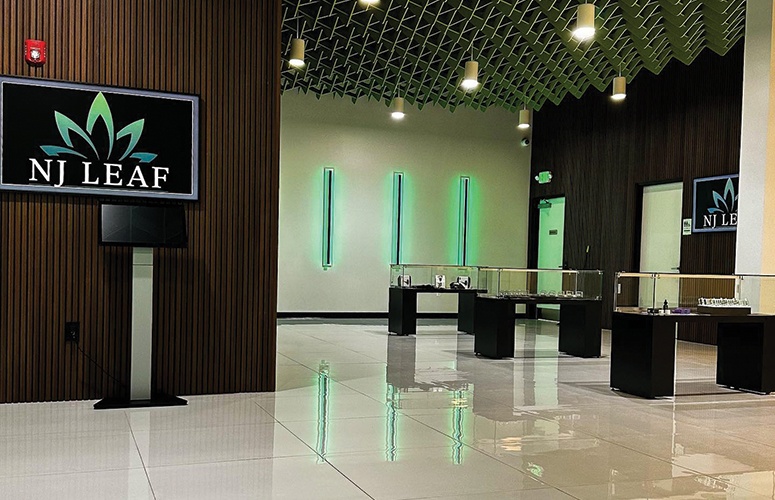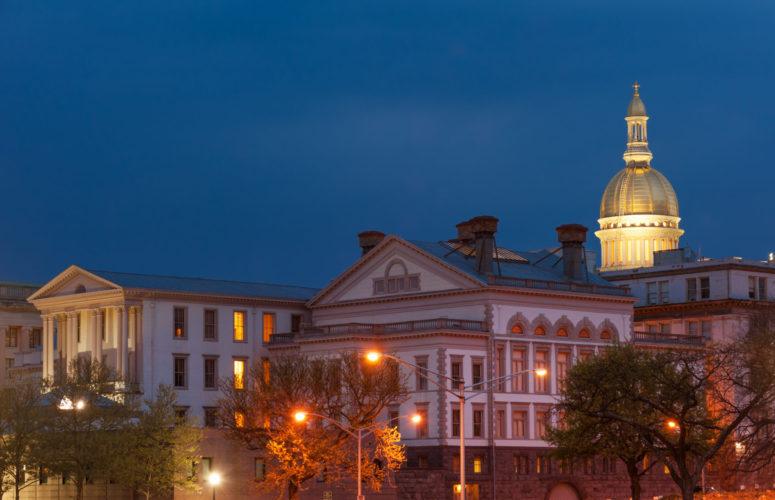
Sense & Sinsemilla
New Jersey’s recreational-use, legal cannabis trade is growing, but demand is outpacing supply. In this story, industry experts try to make sense of what’s in store for them and other “budding” entrepreneurs in this nascent industry.
By Lisa Goulian Twiste, Contributing Writer On Nov 9, 2023When Gov. Phil Murphy signed a bill legalizing the recreational use of cannabis in early 2021, it opened the door to a whole new industry that has taken New Jersey by storm. As of mid-September, there were 54 dispensaries for recreational cannabis – compared to less than 20 a year ago. These businesses are spread across 17 of the state’s 21 counties, with about two-thirds selling both medical and recreational products and 13 for medical use only.
To further underscore how quickly this industry is growing, total sales for the second quarter of 2023 totaled $193 million, up from $139 million for the same period last year – representing nearly 40% growth. And most experts agree that, with the NJ Cannabis Regulatory Commission (CRC) issuing a steady stream of permits to cultivators, manufacturers, retailers, and testing laboratories, we’ve only begun to scratch the surface.
“We have seen some incredible growth, and quicker than we could have expected,” says Alisson Jensen, vice president of operations, sales & marketing at NJ Leaf in Freehold, which opened as a medical dispensary in March and was approved for recreational sales in June. “The local community and New Jersey cannabis community have been so welcoming and supportive of us, and we have been consistently tasked with how to keep up with the growth. It’s a great problem to have.”
Curaleaf, which has been selling to New Jersey medical patients since opening a Bellmawr dispensary in 2015, more recently added locations in Edgewater Park and Bordentown – all three now licensed for medical and adult use sales. The company, which also has multiple locations in New York, Pennsylvania, Connecticut and Maryland, saw New Jersey sales more than double between the second and fourth quarters of 2022. Since then, Curaleaf has been able to roll out a variety of new products and brands, including Grassroots, JAMS and, most recently, a proprietary vape called Select Briq.
“We have been thrilled with the sales results at our stores in New Jersey. In fact, it’s clear from the trends in sales that customers and patients need even wider access to cannabis in the state, and the current dispensary count is not enough,” Curaleaf CEO Matt Darin says. “The reality is that after over a year of adult use sales, the New Jersey market has not grown at the rate once forecasted by state regulators and industry experts as a result of regulatory delays that have slowed the opening of additional licensed dispensaries.”
Start-Up Challenges
No doubt, while the demand for recreational marijuana is great, getting a business off the ground in New Jersey comes with a daunting set of challenges. In the area of staffing, for example, the onboarding process takes longer than in other industries because of extensive background checks and CRC approvals. Another problem facing dispensaries is lack of variety and access to products. Because cannabis is not legal on a federal level, product sold in New Jersey must be grown in New Jersey. And, with a limited number of suppliers, what’s being sold is all relatively similar, says Jensen. “There are a lot of cultivators who will be coming on within the next year, so there should be some exciting new options coming to market very soon,” she adds.
Perhaps most problematic are banking and payment systems. Federal restrictions have kept banks from partnering with dispensaries – particularly small, independent operators – and according to the American Bankers Association, as of July, just 11% of US banks and 4% of credit unions provided banking services to cannabis businesses. Many dispensaries are forced to deal in cash only, making them targets for criminals, and on the flip side, shutting federal regulators out of the process can lead to criminal activity, such as money laundering and tax evasion. “The crackdown on debit and credit card use to purchase cannabis has been a serious challenge industrywide,” Jensen says.
According to Darin, banking reform remains a priority for the industry. In May, the state passed a law allowing cannabis businesses to be taxed like any other New Jersey industry, which “removes an unnecessary financial burden and allows businesses to focus on growth and job creation,” he says. In addition, on September 27, a U.S. Senate Committee finally advanced the Secure and Fair Enforcement Regulation (SAFER) Banking Act after several failed attempts, improving the chances that regular financial institutions can serve cannabis businesses with state certification – despite marijuana use being illegal on a federal level – and reducing the industry’s dangerous practice of dealing in cash.
While these are important first steps, broader reform is needed at the federal level, such as the Department of Health and Human Services’ recommendation that marijuana be rescheduled from Schedule I to Schedule III under the Controlled Substances Act (CSA), Darin says, adding, “It is simply preposterous that cannabis be listed in the same category as fentanyl or heroin. This change is overdue.”
The Long Road to Opening
Brenda Hopper knows first-hand how challenging it can be to open a cannabis business in New Jersey. After obtaining a conditional license for South Orange-based CannaBoy Treehouse in the spring of 2022, she had to gain approval from the local planning board, commission a parking and traffic study, make architectural changes to her property, and pass plumbing, electrical, and building inspections. Now, Hopper is waiting on the CRC to visit the site and approve her for an annual license before CannaBoy Treehouse can open.
“I remember when we started looking for locations, either the landlord didn’t want to lease to a cannabis business, or the rents tripled when you mentioned cannabis, so I dipped into my savings to buy the building,” says Hopper, former state director and CEO of the New Jersey Small Business Development Centers, who applied for the license as both a woman-owned and minority-owned business. “I was so happy to get approved for a conditional license, not realizing the deep pockets I’d needed to get this done.”
The CRC has now begun accepting applications for recreational delivery licenses – with priority given to social equity and diversely-owned businesses until March of 2024. This includes delivery to municipalities that have so far said no to the physical presence of legal cannabis businesses.
NJ Leaf plans to expand into delivery in the near future, but will prioritize medical patients, according to Jensen. “There are a number [of people] who have mobility issues, cannot drive, have severe social anxiety, etc.,” she says. “Delivery will allow them to get their cannabis meds in a timely manner, without a large inconvenience to them.”
Curaleaf, which offers delivery services to medical patients, has also enhanced the convenience factor with its recently launched mobile app, which gives patients and customers a way to order cannabis products, receive discounts and more.
“Our secure online ordering system allows patients to view live inventory from the comfort of their homes and provides estimated pick-up times,” Darin adds.
Hopper hopes to have CannaBoy Treehouse up and running by November. She says she’d like to eventually add a delivery component, a lounge area and maybe even grow her own product. “I believe the potential is there, once the state and CRC get a foothold in this industry,” she says. “I believe in years to come, cannabis stores will be commonplace, with a dispensary on every corner.”
To access more business news, visit NJB News Now.
Related Articles:





